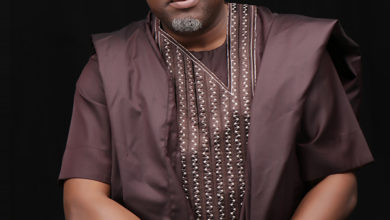
- Mr Tope Fasua talks about the eradication of Uber, Bolt and other rideshare businesses in Nigeria
Technology is a disruptor. Anyone who feels too comfortable with their status quo should watch out. And so it was that Nigerians were held to ransom by our famous, old taxi drivers with their usually stinking cabs. Until Uber and later, Bolt came calling from the USA and Estonia respectively. Young boys had sat down to work out ways of democratizing ride hailing – basically that anyone could be a taxi driver and earn an extra buck at free hours, and that anyone who wanted a cab could also be linked up with those who could drive. Before then – especially in the Lagos region – the experience with our taxi drivers was awful. Not only were they unruly – especially the ones at the airport who never agree on an organized way of picking passengers – but they were also very expensive. These men spent most of their time playing games like draught, ludo, or sport betting. They usually had their taxi stands or parks in strategic areas of Lagos State. And if you needed their services, they often were reluctant, preferring instead to play their games and have leisure. At every point in time, they complained about the ‘go-slow’ in that part of town that you wanted to go.
I have spent up to N40,000 in a single day on these guys just to get around in Lagos, when money had value. If technology had not come to disrupt them, perhaps we will have been subjected to price increases and one will easily spend N70,000 in a day. I recall landing at the Lagos Local Airport, headed for Victoria Island. N6,000. VI to Lekki. N6,000. From Lekki to Apapa, N6,000. From Apapa to Allen Avenue. N6,000. And then back to VI. N6,000. N30,000 is gone just like that. And we are talking of sometime around year 2007/8 when money still had value. The sad thing is that their cabs stank and were rickety, and don’t even talk about air conditioning. Sometimes, fumes from the exhaust came inside the car, and they would usually have to branch and queue for petrol which they bought in bits of N500 or N1,000. And since their cars usually leaked, you end up smelling like you had been doused in petrol for your meeting.
Uber and later, Bolt came and redefined some things. They required taxis to be in some certain conditions. They had to approve of your car. And you were required to go through training as a taxi driver around courtesy, neatness, even that you had to ask the rider what kind of music they wanted to listen to. Drivers were even required to quickly clean the car after each ride and to keep quiet during the ride and keep their opinions to themselves.
But in no time, all that went out of the window in Nigeria – the special country where we make our own rules. Somehow, the type of rickety cars that we thought we had escaped forever. Then, trust Nigerians, the cars started getting dirty. I recall that even when Ghanaian uber drivers still kept to standards, Nigerian ones had moved on. We live in a land where nobody cares. I recall ordering a ride from Eko Hotel for the Airport and the guy ran out of fuel in the middle of the 3rd Mainland Bridge. The tiny car was so rickety the fuel gauge malfunctioned. The driver complained that the owner has refused to repair the car. I was lucky not to have been robbed that afternoon but the ‘area boys’ that helped pushed the car for about 2 kilometres to the nearest fuel station in Adekunle taxed me about N5,000 – which was all I had in my pocket. One needs a generous spirit to survive our times. If I was there arguing with the driver and playing the big man, these boys who roam the long stretch of the bridge for victims could have robbed me and thrown me in the lagoon. Instead, I joined them to push the car all the way. My Mac laptop alone was worth over N1,000,000.
But situations have gone from bad to worse with these ride hailing services in Nigeria. In parts of Nigeria’s hinterland where a ride costs as low as N500, drivers would usually ask you before picking you up what you wanted to really pay them. They are not in the business for peanuts. Others will insist on going ‘offline’ meaning that you strike an independent deal with them and cancel the ride. I understand that having to pay 25% of their earnings to some foreign company is quite burdensome. But what really bothers these drivers is that they are unable to ‘slam’ riders with heavy fares, like the old men I described above. Nigerians are very aspirational. Everybody wants to be a billionaire here and everyone is under pressure. The stability of earning a steady N150,000 monthly – which could be more if you own the car – is not for us here. Everyone needs to hammer, and so young Uber/Bolt drivers have joined their ancestors and forebears in the business of exploiting poor riders.
The ones at the airports are worse. It is now a case of taking customers for the proverbial ride and this has to be brought to the attention of the ride hailing companies by whoever is reading this who has some access to them. This is the object of this writeup. On my last trip to Lagos, I had already collected my luggage from the carousel before I called a ride. But before I could drag my luggage out of the airport building, he had canceled on me. I called and he said he called me once and I didn’t answer. I booked another ride immediately but by the time I got to the 1st floor car park, he too had canceled. I was livid and confused and with luggage looking like an idiot. There the uber drivers were, in a corner on the 1st floor, gisting away – again like their ancestors. I engaged these two guys who canceled the ride. They were right there with their friends in that corner, having a laugh. They brought up all sorts of excuses, but I had to negotiate with one of them offline to be dropped at a hotel near the airport, for twice the amount that Bolt had estimated in my earlier booking. A friend also narrated to me how a Bolt driver in Abuja, after picking him up started to negotiate for more money. When my friend refused, Bolt guy parked by the roadside on the expressway and asked him to drop off. The violent reaction from my friend made him change his mind. What is however more frequent is when the driver shows up and asks you to cancel the ride so that you could run offline, and he pockets all the money. All of these tricks amount to extortion. The challenges here are that:
- These guys are getting our data through Uber/Bolt. When one books a ride, your name and number is available there. So also is your passport photo. A keen data miner can use your details (often including credit/debit cards) to get to your bank accounts or even create a clone of you for other purposes. I think this is unfair on riders.
- This is serious data protection breach which must be addressed by these ride hailing companies
- All sorts of monkey business will now start. The security of knowing that your journey is recorded and could be traced has disappeared. If you strike a deal with them offline and they happen to have criminal intents, you are on your own.
- The rider is left vulnerable and subject to blackmail, in the middle of nowhere. Canceling a ride on someone with no alternatives with a view to setting your own terms is blackmail and extortion.
- Whatever calamities occur as a result of these shenanigans fall back on Bolt/Uber and the companies’ names will always be mentioned. If something really serious occurs, lawyers could find ways of making those companies fall liable for nor risk-managing people’s data appropriately. Those companies must act fast
And what those Uber Bolt guys don’t know is that they can jam fortune by just being nice and truthful people. I understand even Dangote, the richest man in Africa, takes Uber sometimes. Imagine what a nice, neat car and good manners could do with Dangote in a single ride. Even I as a poor man. I met this young Bolt guy in Lagos named Socrates (real name) who had been struggling with schooling. He’s now in Open University and I paid half of his first-year fees. I will continue till he finishes insha Allah. When I posted his case of Facebook my friends started sending him money and he must got close to 200k. Someone suggested we send him millions but in asked them to allow him focus and develop mental muscle on his own. He paid his rent with the donations then. His mum calls me from the East occasionally. Just from a single Bolt ride. I’m not sure I’ve ever used a bolt or Uber without tipping them generously. Except a few very lousy and careless ones. Some are too talkative. Some are flippant. A few have suppressed criminal tendencies. But most are okay. With this ‘oyibo’ innovation, God lurked there somewhere waiting for whose good attitude will help them lever out of poverty. A few made it. A lot were held down by their attitudes. They still complain about how Nigeria is such a useless place. Most of our people’s problem has very little to do with government or Nigeria but themselves and their attitude to life. Rather than choosing to be good and fair, our young Uber/Bolt drivers have decided to criminally obtain people’s data from the same platforms and use such data to blackmail and extort money. Nigerians are not special beings. Bad, weak governance has only made us more wayward over time. I await what Bolt and Uber will do to redress this matter.
And for the drivers too, there is a need for some protection. There are two cases I know about currently. One man took one of these rides from Abuja airport, allegedly had seizures while in the car, was rushed to the hospital by the driver, and died. As at the time of writing this, he is still a guest of the police as prime suspect. Police must do its job to ensure it was not murder, right? In another instance told to me by a lawyer friend, a driver picked someone at Lagos airport, drove him to Banana Island only to realize that he had died right at the back seat. Again, police case. The last time I took an Uber in London, I recall one of the drivers showing me the cameras that record every journey. There were three cameras in the car. One behind and two from the front. But because of the lowering of standards in Nigeria, no one is thinking about this, thus making drivers extra vulnerable, just as the passengers. This is just the right time for more investment, more seriousness and a review of business model by these apps in Nigeria. And we too should behave like people who deserve global best practices.



